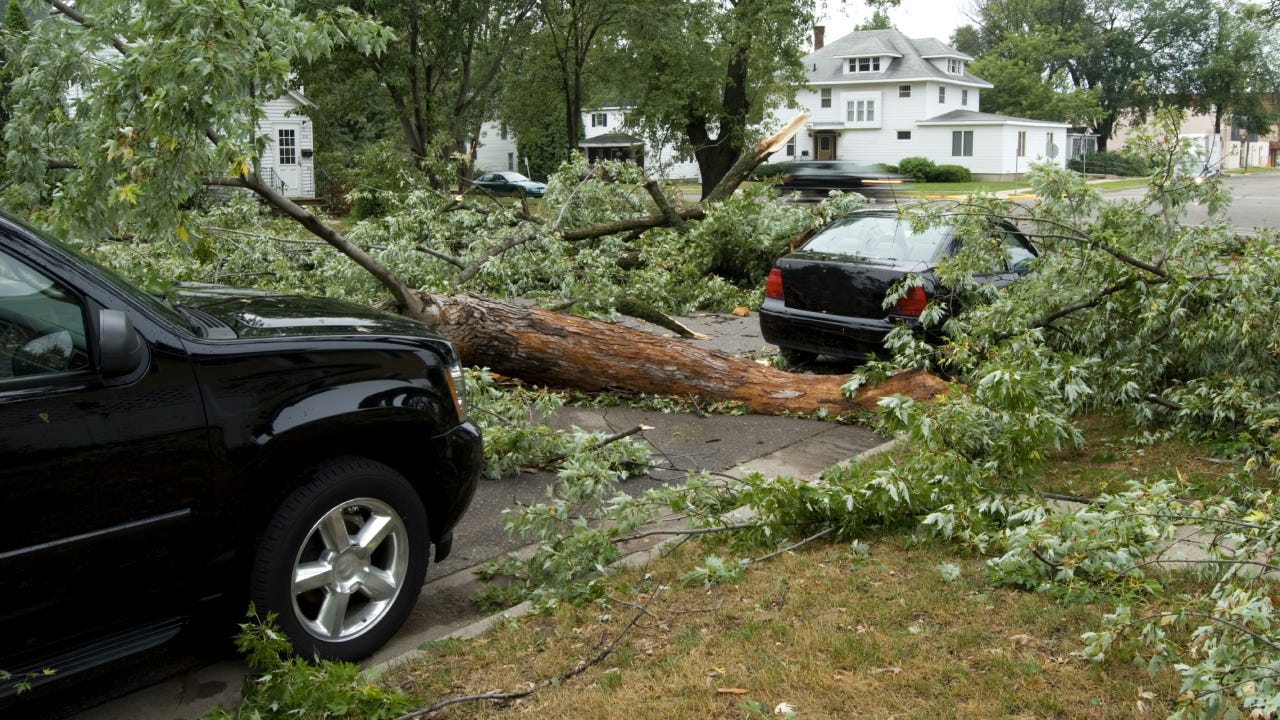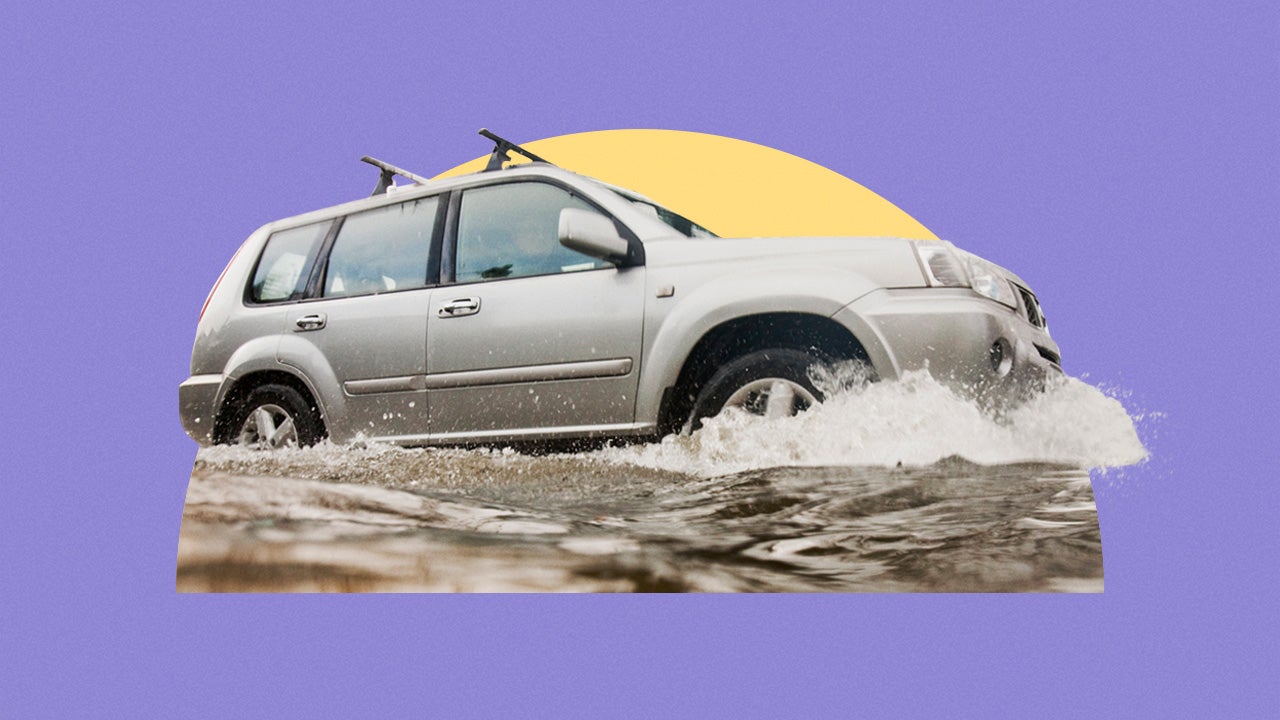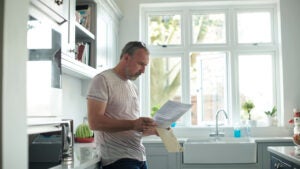What to do with a damaged car after a hurricane

The 2024 hurricane season wasn’t just bad news for homes — cars also got caught in the storms. Vehicle data company Carfax estimates that around 347,000 cars were damaged this hurricane season, with the majority of losses stemming from Hurricanes Helene and Milton. If you have a minimum coverage policy, you won’t be covered for hurricane damage — you must carry comprehensive car insurance for weather-related incidents. Bankrate’s insurance editorial team can help guide you through what you need to know about hurricane damage to your car, including some tips on keeping your set of wheels safe during a storm.
Key takeaways
- Comprehensive car insurance can help with hurricane-related vehicle damage.
- You usually can’t purchase coverage right before a storm, as an insurance company may pause new policies and coverage options ahead of an extreme weather event.
- 2024 was an especially active hurricane season, with 11 storms as of early November. Since 1851, only eight other years have had 11 or more storms.
Is hurricane damage covered by car insurance?
Vehicle damage caused by a hurricane should be covered by comprehensive car insurance, which is part of what’s known as a full coverage car insurance policy. If you don’t already have this kind of auto insurance, you may not be able to purchase it before a storm hits. Insurance companies may institute a moratorium that prevents residents in certain ZIP codes from purchasing car insurance policies ahead of a potential natural disaster. Moratoriums can also prevent policyholders from adjusting their existing coverage.
Comprehensive coverage typically covers damages caused by the following hurricane-related concerns:
- Falling objects and debris
- Flood
- Hail
- Wind
What to do if a hurricane damages your car
Hurricanes can cause a variety of damage to your car, including interior flooding damage or exterior damage caused by falling debris. Regardless of the level of damage your vehicle experiences, the following tips may help you handle the aftermath.
How to prevent hurricane damage to your car
While you can’t control the weather, you can prepare for it. These tips can help show you how to avoid hurricane damage to your car:
- Park strategically. Where you park your car during a hurricane could help prevent a car insurance claim. If possible, it’s best to park vehicles where they are at the least risk from flooding, wind, falling objects and debris. Sheltered, elevated terrain or an enclosed structure can be good options.
- Remove valuables from the car. Personal belongings in your car are usually covered by your home or renters insurance policy — not your auto policy. Whether or not you have insurance for these items, you may want to remove them from your vehicle, especially any valuables, to lessen the risk of those items being damaged.
- Tape the car windows. While it’s a myth that taping windows will prevent them from breaking, it may help keep the glass contained if it breaks. Taping your windows may also help keep water from seeping through a broken window.
- Cover the vehicle. Covering your vehicle can help protect it from scratches or dents caused by flying debris. While custom car covers can be purchased, they may be expensive. Blankets, cardboard or any fabric you have on hand may help protect your vehicle during a storm. Be sure to secure any covering so it doesn’t blow away.
- Keep vehicle documents safe. You may want to keep any essential vehicle documents inside, not in the glovebox. If keeping documents inside isn’t possible, storing them in watertight bags or containers may help protect them against possible damage.
- Never drive through standing water. You may think that a large puddle is shallow enough to drive through, but looks can be deceiving. Puddles are often deeper than they look and can cause significant damage to your vehicle. Additionally, driving through standing water can be an electrocution risk if a downed power line is hidden under the water.
- Fill your gas tank. You may have difficulty finding a gas station in your area that has power after a hurricane. Fill up your tank before the storm. While this won’t help keep your vehicle safe, it can provide peace of mind if you have to evacuate, find help, or drive your car to a repair shop after the storm has passed.
It’s also good practice to take interior and exterior photos of your car before and after the storm. This won’t help prevent damage, but it can be good to have evidence of the car’s condition before the storm if you have to file a claim.
Frequently asked questions
Why we ask for feedback Your feedback helps us improve our content and services. It takes less than a minute to complete.
Your responses are anonymous and will only be used for improving our website.
You may also like

What to do if your homeowners insurance is canceled

Car insurance after a hit-and-run in Nevada

Does car insurance cover flooding damage?



